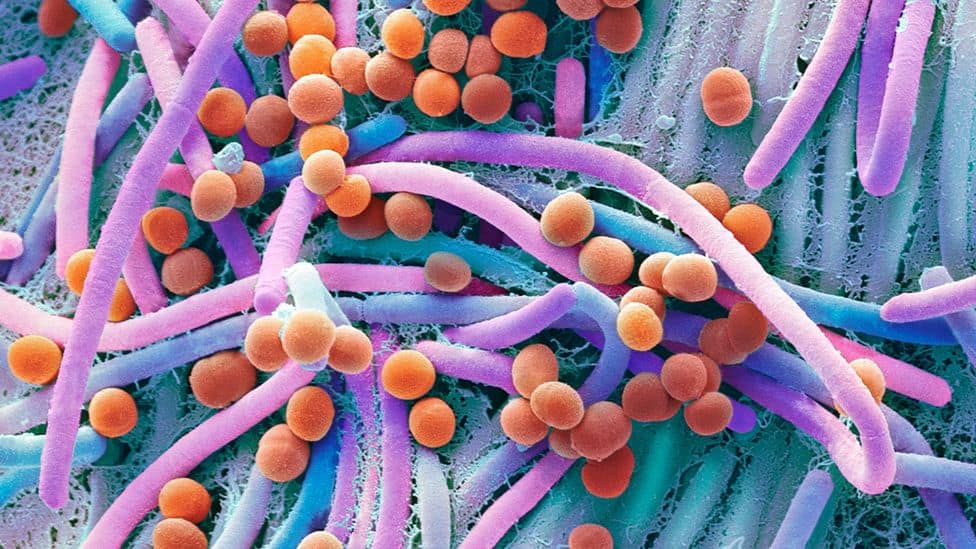Beneficial Bacteria Could Aid Infant Immune System Development
Nikki Attkisson | Last Updated : June 29, 2021According to a new study, the first 100 days after birth are important for priming immune system development and decreasing systemic inflammation.
Beneficial Bacteria Could Aid Infant Immune System Development
Researchers at Sweden’s Karolinska Institute have linked all Breastfeeding, good gut flora, and immune system development.
The study, published this month in the journal Cell, is the first to show how a friendly bacteria strain known as activated Bifidobacterium infantis EVC001 (B. infantis) influences immune system development in infants, potentially lowering the risk of allergic and autoimmune conditions later in life.

According to Punita Ponda, MD, assistant chief in the division of allergy and immunology at Northwell Health in New York, this research and some initial information from other sources, including human and animal studies, seem to indicate that there could be a correlation between the presence of beneficial gut bacteria in infants and protection from the growth of allergic diseases.
The research examined 208 breastfed infants born between 2014 and 2019 at Karolinska University Hospital in Sweden.
Because doing biopsies on young newborns would be unethical, researchers developed unique ways to evaluate the immune system from tiny blood samples.
The University of California followed the second group of babies who were exclusively breastfed, half of whom were given a B. infantis supplement and subsequently tested for intestinal inflammation.
Researchers discovered that babies that lacked B. infantis, which is capable of metabolizing beneficial carbohydrates in breast milk known as human milk oligosaccharides (HMOs), had abnormal immune cell network formation and elevated systemic inflammation.
According to Petter Brodin, a pediatrician, and researcher at the Karolinska Institute Department of Women’s and Children’s Health and one of the study authors, one possible application of their findings is a preventative method for lowering the risk of allergies, asthma, and autoimmune disease later in life by assisting the immune system in establishing its regulatory mechanisms.
The previous study has linked a scarcity of friendly bacteria in an infant’s stomach to the development of allergies and autoimmune disorders later in life.
However, this recent study showed that when B. infantis is consumed early in a baby’s life through nursing, it directs naive immune cells away from immune-related reactions while simultaneously creating regulatory cells that increase the body’s capacity to manage inflammation.
According to Elena Ivanina, DO, a gastroenterologist at Lenox Hill Hospital in New York City, more and more scientific proof is assisting them to realize how important the gut microbiome is in facilitating the development of the immune system — and this is most crucial during infancy and early life, particularly the first 100 days of life.
Ivanina stressed the need of developing healthy gut bacteria at a young age.
According to a study published in January, the great majority of children born in the industrialized world are deficient in this important gut bacterium.
According to Ivanina, the decrease in B. infantis in newborns born in industrialized nations is likely due to three factors: a higher incidence of cesarean birth, the use of commercial formulae instead of breast milk, and increasing antibiotic usage.
Ponda advises breastfeeding if at all feasible. However, breastfeeding is not always viable or desired by parents.
Ponda, on the other hand, sees a possible function for B. infantis supplementation, particularly for infants who may not be breastfed.
According to Ivanina, probiotics have a typically favorable safety profile, with minimal adverse effects recorded.
However, the usage of these supplements should always be addressed with a child’s doctor. They may include cow’s milk protein, which is an allergy.
According to Ivanina, this is still an active field of research, and it is unknown if health issues caused by B. infantis deficiency will resolve over time.
With over 15 years as a practicing journalist, Nikki Attkisson found herself at Powdersville Post now after working at several other publications. She is an award-winning journalist with an entrepreneurial spirit and worked as a journalist covering technology, innovation, environmental issues, politics, health etc. Nikki Attkisson has also worked on product development, content strategy, and editorial management for numerous media companies. She began her career at local news stations and worked as a reporter in national newspapers.